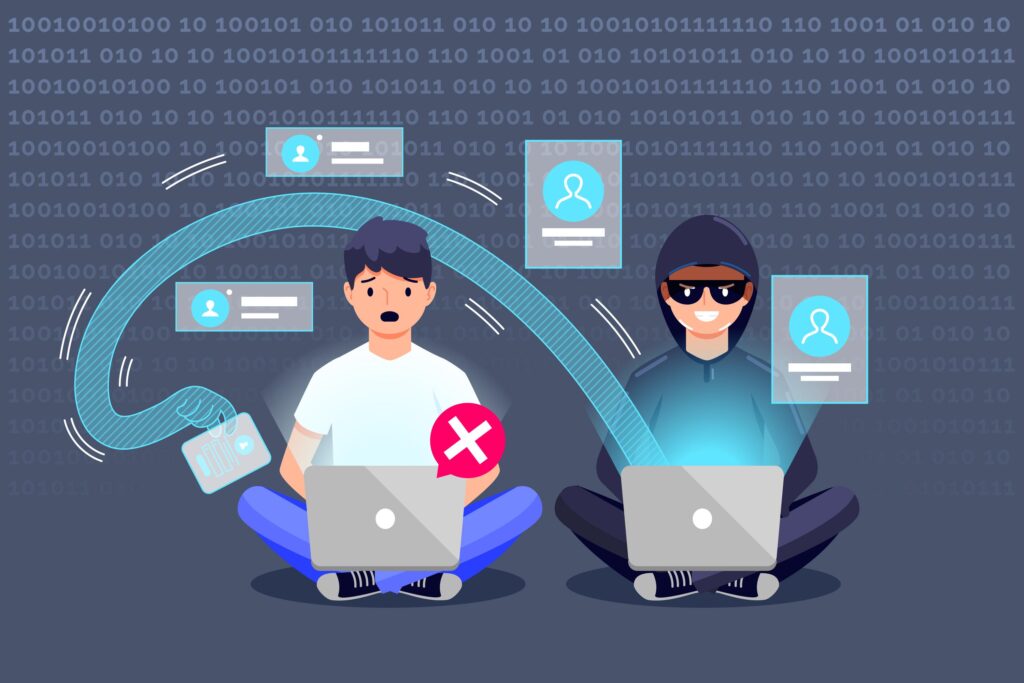In the digital age, where communication is primarily conducted through phones and the internet, criminals are becoming increasingly sophisticated in their methods. Vishing, short for “voice phishing,” is one such method that has gained prominence in recent years. Vishing attacks use phone calls to trick individuals into revealing personal and financial information. To protect yourself against vishing attacks, it’s essential to be aware of the tactics employed by these criminals and adopt proactive measures.

Understanding Vishing Attacks:
Vishing attacks are a form of social engineering where attackers impersonate legitimate entities, such as banks, government agencies, or tech support, to manipulate victims into divulging sensitive information. These attacks often rely on fear, urgency, or the promise of rewards to coerce individuals into complying with the attacker’s demands.
Here are some key strategies to protect yourself against vishing attacks:
1. Verify Caller Identity:
- Never blindly trust the identity of a caller, even if they claim to be from a reputable organization. Always verify their identity independently.
- Ask for the caller’s name, organization, and contact information, and tell them you will call them back using the official number listed on the organization’s website or other official sources.
- Be cautious of Caller ID spoofing, a technique where attackers manipulate the caller ID to appear legitimate. This can be done easily using readily available technology.
2. Don’t Share Personal Information:
- Never share personal or financial information over the phone unless you are absolutely certain of the caller’s legitimacy.
- Be particularly cautious with sensitive information such as Social Security numbers, bank account details, credit card numbers, and passwords.
3. Be Wary of Unsolicited Calls:
- If you receive an unsolicited call from someone claiming to be from a government agency, bank, or any other organization, exercise caution. Scammers often use this tactic to catch people off guard.
- Remember that government agencies and legitimate organizations typically do not make unsolicited calls asking for personal or financial information.
4. Avoid Impulsive Actions:
- Attackers may use high-pressure tactics, such as threats or time-sensitive offers, to pressure you into taking immediate action. Don’t succumb to urgency.
- Take your time to assess the situation and verify the caller’s identity independently.
5. Educate Yourself and Your Family:
- Educate yourself and your family members about vishing attacks and the risks associated with phone calls from unknown or unexpected sources.
- Encourage open communication so that everyone in your household is aware of these risks.
6. Use Call Blocking and Filtering:
- Utilize call-blocking and filtering features on your phone. These features can help screen and block calls from known scam numbers or unwanted callers.
- Explore third-party apps and services that offer advanced call-blocking and spam detection.
7. Report Suspicious Calls:
- If you receive a vishing call or suspect that you’ve encountered a vishing attempt, report it to your local law enforcement and relevant authorities.
- Reporting such incidents can help authorities track and apprehend vishing scammers.
8. Enable Multi-Factor Authentication (MFA):
- Enable MFA for your accounts, especially for those related to finances or sensitive data. MFA adds an additional layer of security and makes it harder for attackers to gain access even if they have some of your personal information.
9. Stay Informed:
- Keep up-to-date with the latest vishing scams and tactics. Awareness is one of the best defenses against evolving threats.
- Subscribe to alerts and newsletters from reputable security organizations to receive timely information about new threats.
10. Trust Your Instincts: – If a call feels suspicious or makes you uncomfortable, trust your instincts and end the conversation. It’s better to be cautious than to fall victim to a vishing attack.
In conclusion, vishing attacks can be financially and emotionally devastating. Protecting yourself against these scams requires a combination of skepticism, vigilance, and education. By verifying caller identities, avoiding impulsive actions, and educating yourself and your family, you can significantly reduce the risk of falling victim to vishing attacks.